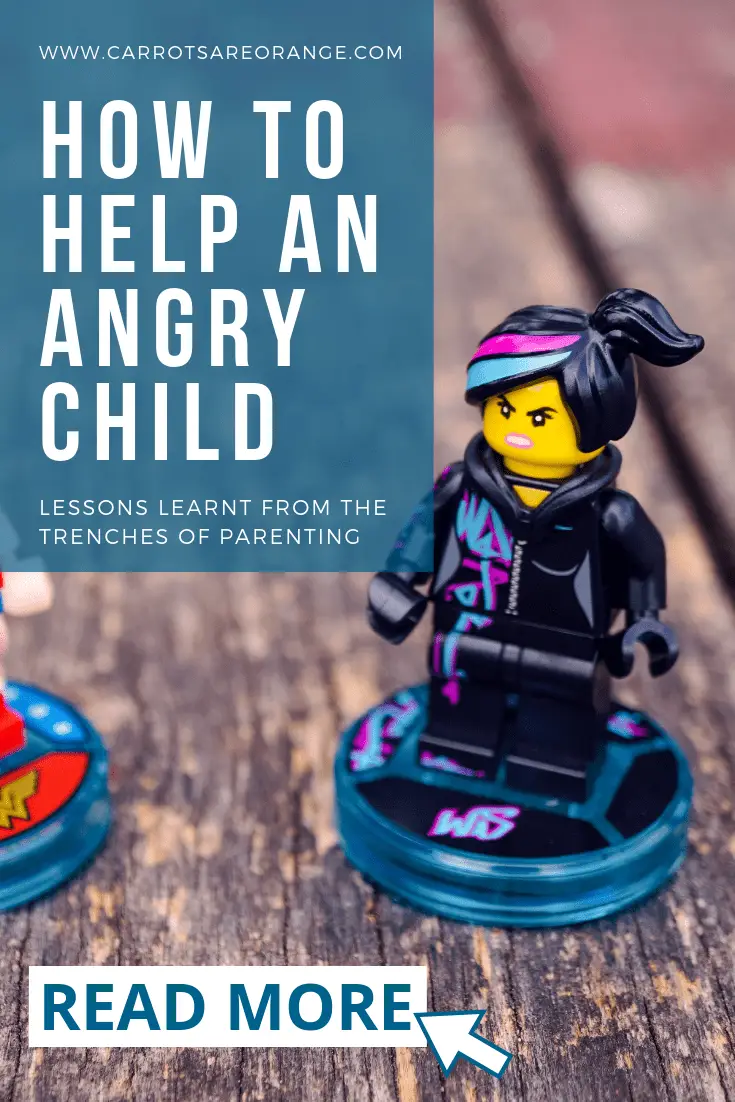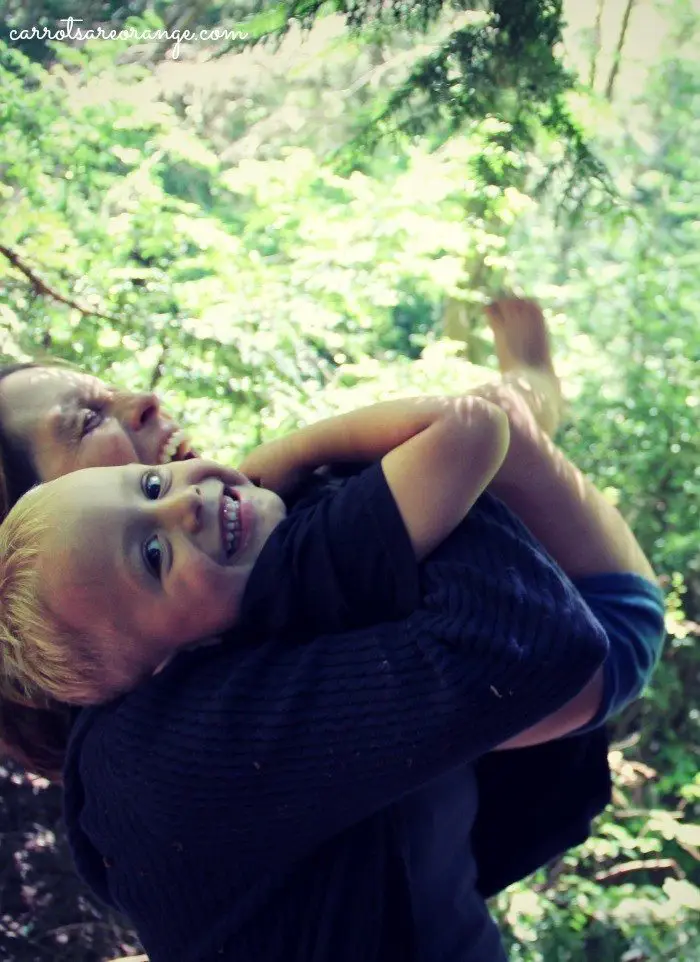Parenting an angry child is tough. I have shared with you that our middle child is rigid and inflexible, therefore resulting in explosiveness (i.e. tantrums). My husband and I have worked hard educating ourselves on how to help an angry child or a child that has a particularly challenging demeanor. The journey has been long and often difficult, but I embrace the “that’s life” mantra, that this is the hand of cards I was dealt.

So, I will play this hand! Plus, I am extremely hopeful. We discovered a book called The Explosive Child by Dr. Ross Greene. In this book, he provides background and understanding on dealing with difficult or challenging children. He offers a framework for parents and teachers in order to best help an explosive child. I am not exaggerating when I say this approach has changed my life!
—>> Read more about my “in the moment” tips
Our journey with our middle son has been filled with ups and downs. The qualities that make him so extraordinary are also his biggest challenges in life. He goes against the grain, has a conviction like no other person I’ve ever met, but also has difficulty shifting gears. He has trouble seeing another point of views and coming up with solutions other than his original intention. It seems as though he is constantly upset. Sound familiar?

What You Can Do to Help an Angry Child
- Embrace that you are not alone. I remember reading parts of The Explosive Child and feeling relieved that there are other families trying to manage the same situations. I was practically brought to tears.
- Read The Explosive Child
by Dr. Ross Greene. Use his framework as a guide.
- Explore Dr. Ross Greene’s website Lives in the Balance for guidance and resources. This website is where we found the wonderful therapist that has walked us through identifying specific problem areas.
- Recognize, understand, and accept that your child is lacking skills in problem-solving. So just as you would work with him on his math if he were lagging skills, you need to work on his lagging problem-solving skills.
- “Don’t be a genius” – Give your child the time and space to come up with solutions to his own issues (with your help).
- Gather solvable information.
- Choose one problem area and focus on that problem alone. Proactively plan to allow or to mitigate the other unsolved problems. In other words, if you choose to eat this week/day, allow for screen time, for example. If your child asks to watch another show this week, or if he can watch shows before bed, let him. I know it sounds crazy but mitigating the impending explosion will allow for greater time for you and your child to work on the chose unsolved problem. Make sense? Then you can move on to screen time, or whatever the next unsolved problem may be.
- Remember that collaborating with your child is the key to success. You are a team.
- Empathize with your child. He is most likely quite sad and in a lot of pain emotionally and often physically. No one wants to be inflexible and rigid. Write this on a piece of paper and put it somewhere to remind you every day.
- Research the Sensory Diet and create a regimen for your child
- Avoid “why?” when gathering information from your child. Ask the “when”, “how”, “where”, “what”, and “who”.
- Be as specific as possible when asking questions and gathering information from your child. For example, “I noticed that you’re having difficulty getting along with your friends. Can you tell me more about that?” might be better worded as “I noticed that you and Joe were having trouble playing together on the playground yesterday. Can you tell me more about how you and Joe were having trouble?”
- Practice reflective listening instead of immediately offering a solution, or jumping to conclusions. For example, if your child says, “I hate soccer.” You might say, “Okay, you hate soccer. Tell me more.”
- Be patient. This process of collaborating with your child to come up with solutions to address the problem areas in his day does not happen overnight. It will happen, though. I gathered information about brushing teeth for four days with my four-year-old this week before seeing progress.
- Summarize. For example, “You are having trouble brushing your teeth because it takes too long and your hand gets tired because the toothbrush is too heavy. Is that right?’

Today I had a conversation with my son about his issue of his friends not wanting to play his games on the playground. When we finally got to the solutions part, he began with solutions that would pacify him like getting a treat in his lunchbox. We ended with HIM coming up with concrete ideas on what he could do on the playground when his friends don’t want to play his games including playing with his brother, other friends, and taking a turn to play his friends games (I discovered that when his friends told him they didn’t want to play his games, he told them that he didn’t want to play their games…). My son is four and his list of “unsolved problems” is fairly long.
Today when he wanted to eat popcorn 30 minutes before dinner, I let him. When he wanted to watch a third show instead of stopping at our usual two, I let him. I will deal with those unsolved problems later. Today, we “solved” his sadness about his friends not wanting to play with him.
This sadness made it difficult for us to make our way to school without an explosion. This sadness was also the result of the FACT that he is lagging in the ability to think of alternative solutions, or to accept that it is not about him necessarily, to his friends not wanting to play his games (they want to play with him, just not his games).
>> You might be interested in these book recommendations on how to help parent an angry child
Will you share your story?
Marnie
